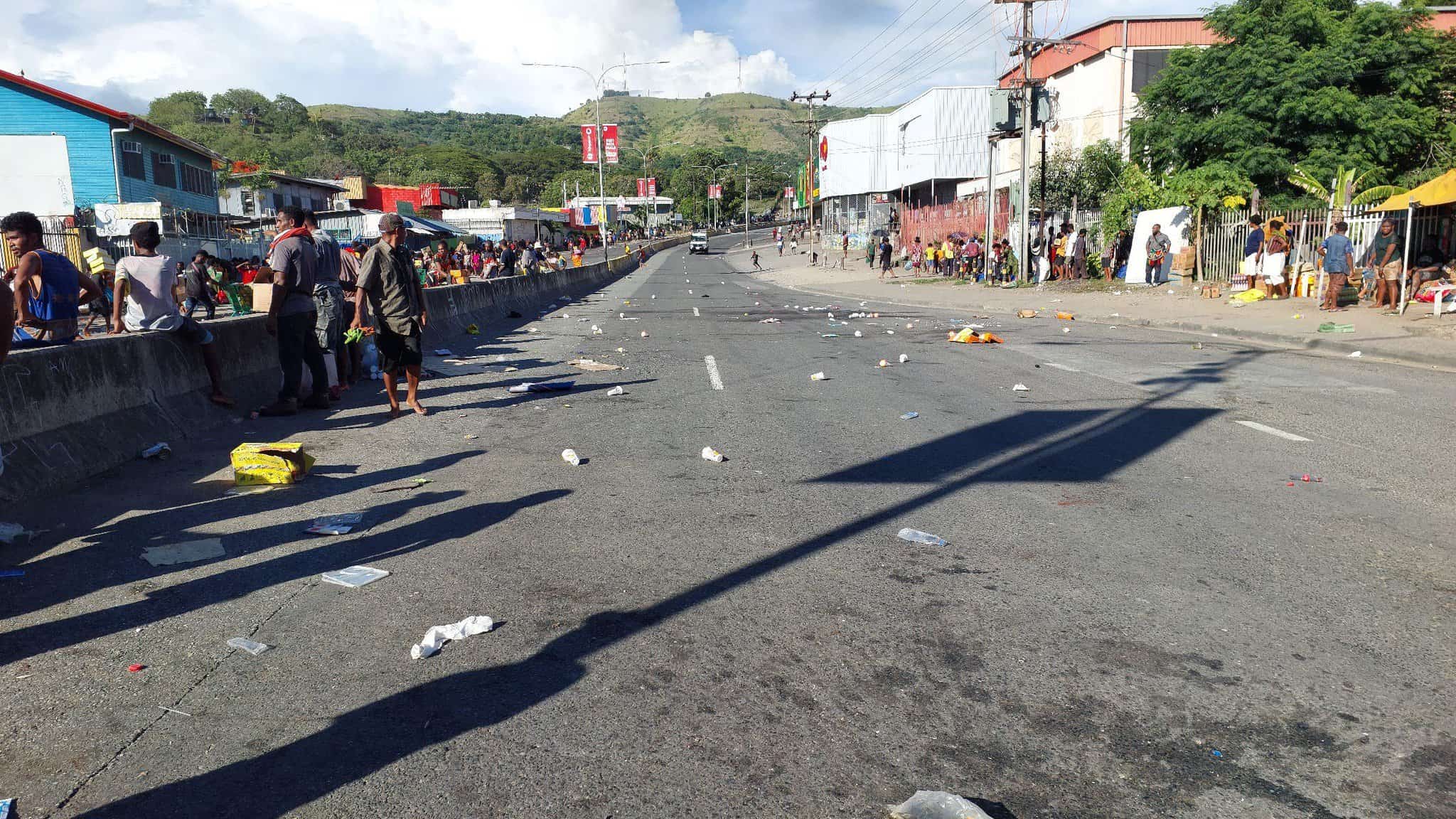The national death toll from violent riots in Papua New Guinea has climbed to 22, with the remains of six people found in Port Moresby yesterday.
It’s understood the remains of the six people were found at two different shops in the city that were looted and set on fire.
It brings the total of people dead in the country’s capital of Port Moresby to 15, while a further seven have been killed in Lae, PNG’s second largest city.
A 14-day state of emergency is in effect in Port Moresby as authorities try to restore law and order, as well as essential services, following violent riots.
Tensions have been high throughout the country since a police strike paved the way for violence in PNG’s capital and its second largest city of Lae.
Shops were set on fire; ATMs were ripped out of walls and citizens were shot as crowds of angry residents took to the streets as part of the unrest.
There is a fragile peace in the capital, though security firms are still warning things remain unpredictable and volatile, as Prime Minister James Marape tries to re-establish faith in the country’s security and the government.
The Marape government has placed the blame over the riots squarely at the feet of the nation’s police constabulary, many of whom walked off the job in protest over a payroll issue just hours before Port Moresby descended into chaos on Wednesday.
“Not only [have] our security forces failed us but some of them went out of their way to incite or encourage our people to loot,” National Capital District Governor Powes Parkop, a coalition partner with Marape, said in a press conference Friday.
“… I even went to the extent of asking the Australian Government to be on stand-by and I made no apology in that respect, you see I can’t trust our security forces, I can trust the Australian security personnel to come and give us support.”
Marape has also suggested the political establishment itself could have had a role to play in last week’s violence.
The events in the capital appear to have had a ripple effect on other parts of the country, with Marape stating other centres were trying to copy what happened.
In an effort to restore calm, Marape declared on Thursday night that 1000 defence personnel would be on stand-by to quell any further unrest as part of a 14-day state of emergency.
The announcement was followed by a high-visibility drive-through by police and defence officers of Port Moresby, with lights and sirens.
On Friday afternoon, Marape described the state of emergency as being “toned down” with limitations on movement of large groups of people, with the exception of church and funeral services.
The measures were designed to allow the government to supervise the re-opening of stores, with multiple shops damaged as part of the riots.
Many businesses in Port Moresby are owned by Chinese nationals, including stores that were burned down on Wednesday.
A spokesperson for China’s foreign minister told China’s state mouth piece, the Global Times, that the Chinese embassy in PNG would provide consular protection and assistance to Chinese nationals and institutions in PNG.
At a press conference on Friday afternoon, Marape said Wednesday’s riots had an element of “organised arsonists” and were assisted by “some rogue element of our police force”.
“An investigation is now going deeper into this area. Within the next 14 days, a full investigation would have been completed, expressly on what transpired that should give us a basis to take administrative action as well as criminal action,” he said.
Marape confirmed he had suspended his chief of police as well as top bureaucrats in the finance and treasury departments while the government conducted a review of the cause of the riots.
The unrest began after hundreds of police officers, soldiers, prison staff and other public servants walked off their jobs over what the government described as a payroll error.
It meant K300 Kina was docked from the fortnightly pay packets of public servants across the country, which is worth about half the pay of junior public service staff. It’s expected to be returned in the next pay cycle.
Papua New Guinea’s taxation body blamed a payroll “glitch” for the error.
But many of those who gathered at Parliament House for a demonstration on Wednesday believed a new tax had been enacted, a claim strenuously denied by PNG’s Internal Revenue Commission (IRC).
Australia’s Deputy Prime Minister Richard Marles said on Friday the circumstances in PNG “have improved somewhat” but the government was continuing to monitor the situation closely. “There are no reports of Australians being caught up in these activities, but we are clearly keeping a close watch on that,” he said.
